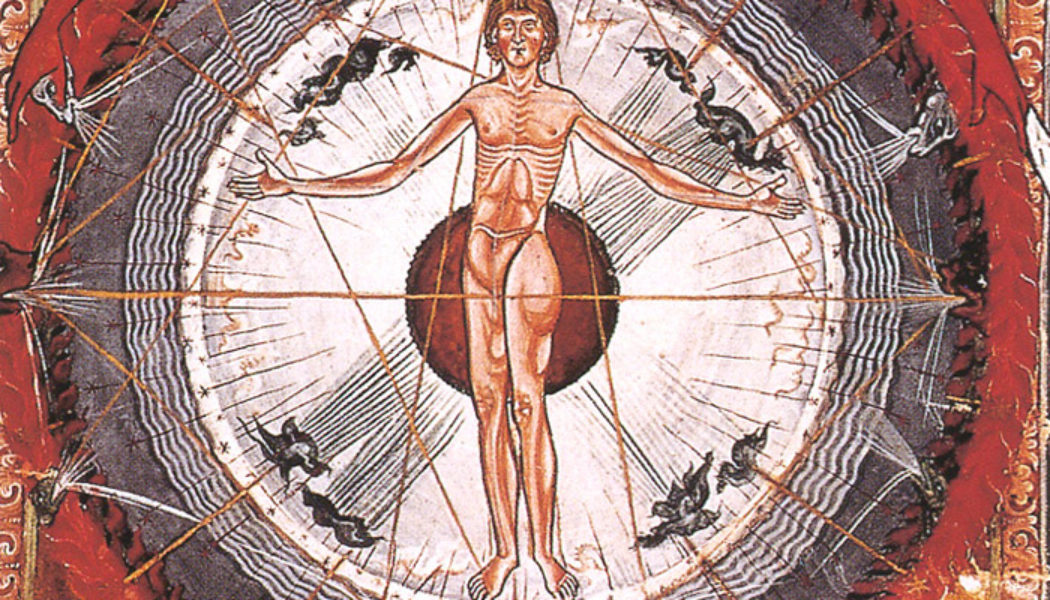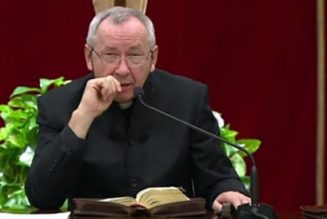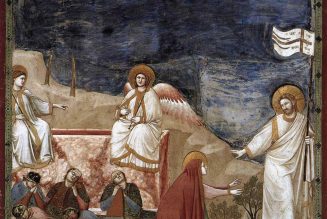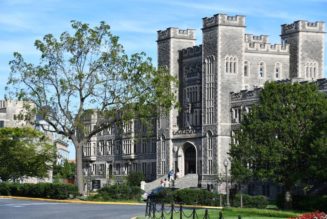
The Vatican’s new document, Dignitas Infinitas, published by the Dicastery for the Doctrine of the Faith (DDF) begins, “Every human person possesses an infinite dignity, inalienably grounded in his or her very being, which prevails in and beyond every circumstance, state, or situation the person may ever encounter.”
I believe this statement to be misleading and in need of clarification, because only God is infinite in himself. He made human beings in his image and unto his likeness. Being the image of the infinite one does not bestow an infinite dignity upon us, but does communicate an intrinsic dignity as “very good.” It derives from the infinite one and is ordered to him as its end, making us to yearn for his infinity as our only true completion.
The claim of “infinite dignity” stands central to the framing of the document due to its very title. The “grounding” of this dignity in our “very being” only aggravates the concern. A rational creature, by nature, stands above other beings. Our nature is ordered to the infinite God, however, only by grace, which elevates our nature enabling it to participate in the life of the infinite God. But, this differs from an intrinsically infinite dignity rooted in our nature itself.
The Catechism on Infinity and Creatures
The Catechism of the Catholic Church also begins with a reference to an ‘infinite’ reality. It speaks, however, of God: “God, infinitely perfect and blessed in himself, in a plan of sheer goodness freely created man to make him share in his own blessed life.” It only uses words related to ‘infinity’ thirty times but in ways that point to God as the only infinite One and human beings as participating in his dignity in a created and finite way.
The Catechism’s second usage of infinity does speak of human dignity in relation to infinite, but only as a direction toward God:
The human person: With his openness to truth and beauty, his sense of moral goodness, his freedom and the voice of his conscience, with his longings for the infinite and for happiness, man questions himself about God’s existence. In all this he discerns signs of his spiritual soul. The soul, the “seed of eternity we bear in ourselves, irreducible to the merely material,”9 can have its origin only in God.
CCC par. 33.
Here are the Catechism’s other usages, listed by paragraph number, which further proves the point that God’s creatures can only reflect and point to his infinite perfection. I’ve highlighted words that direct us to the proper understanding of the relationship of the perfection of creatures to the infinite perfection of God.
- 41 This paragraph reinforces the point that human beings reflect God’s infinite perfection, though they do not possess it. “All creatures bear a certain resemblance to God, most especially man, created in the image and likeness of God. The manifold perfections of creatures—their truth, their goodness, their beauty—all reflect the infinite perfection of God.” Paragraph 48 reiterates this point: “48 We really can name God, starting from the manifold perfections of his creatures, which are likenesses of the infinitely perfect God, even if our limited language cannot exhaust the mystery.”
- 43 God’s infinite is beyond our ability to understand and express using words. This point is reaffirmed in 206 and 251.
- 202 We believe that God is infinite and eternal. 256 affirms this in relation to the Trinity.
- 270 God’s mercy is infinite.
- 300 “God is infinitely greater than all his works” including human beings, of course.
- 310 He has infinite power and no creation could embody his perfection fully. He has infinite wisdom and goodness which work even in the midst of evil and sin.
- 318 No creature has infinite power to create out of nothing.
- 339 “Each of the various creatures, willed in its own being, reflects in its own way a ray of God’s infinite wisdom and goodness. Man must therefore respect the particular goodness of every creature, to avoid any disordered use of things which would be in contempt of the Creator and would bring disastrous consequences for human beings and their environment.”
- 341 “The beauty of creation reflects the infinite beauty of the Creator.”
- 370 “But the respective ‘perfections’ of man and woman reflect something of the infinite perfection of God: those of a mother and those of a father and husband.”
- 385 “God is infinitely good and all his works are good.” They are good but not infinitely good.
- 393 The angels’ sin is irrevocable due to their nature not a defect in God’s infinite mercy.
- 395 Satan as a creature is not infinite in power.
- 1064 We say Amen at the end of the Creed to affirm God’s infinite love.
- 1429 Jesus looks at Peter with infinite mercy moving him to tears. (As the Son of God incarnate, Jesus can express God’s infinity.)
- 1467 The treasury of Chruch is of infinite value because of the merits of Christ.
- 1608 In marriage, man and woman need to the help of God’s infinite mercy to overcome the effects of sin.
- 2086 In the first commandment, we acknowledge God as infinitely beneficent. 2096 expresses similarly that in adoration we acknowledge God as infinite love.
- 2513 The fine arts in some way express the infinite beauty of God.
- 2536 Quoting the Roman Catechism: We have an infinite thirst for another’s goods which cannot be satisfied by them.
- 2658 We express love for God in his infinite mercy through prayer.
Are There Precedents for the Term “Infinite Dignity”?
The new DDF document justifies the expression of “infinite dignity” with a footnote to an Angelus address that John Paul II gave in Osnabruck on November 16, 1980, where he used the German word “unendliche Würde,” which can mean infinite but also unending or unbounded dignity (translated as ‘immense’ in the link provided). It is certainly true that human dignity is unending, even were one to enter hell, in so far as the person would also retain the image of God within. It is also unbounded to a certain degree, though not in comparison with God’s infinity. We, as fellow human beings, cannot put limits on the dignity of other human beings, as we do with animals, plants, and other natural resources. All of God’s creatures deserve respect, but human beings, uniquely in the material world, bear an intrinsic order to God in a transcendent and spiritual manner. This single Angelus address, with an ambiguous statement, does not clearly ground the legitimacy of the term.
The 2008 CDF document, Dignitatis Personae, another recent document on human dignity, does not contain a single use of the word ‘infinite.’ Donum Vitae is likewise mute. The Church’s social teaching generally grounds human dignity in humanity’s rational nature, as we see in the Second Vatican Council’s Dignitatis Humanae: “It is in accordance with their dignity as persons-that is, beings endowed with reason and free will and therefore privileged to bear personal responsibility-that all men should be at once impelled by nature and also bound by a moral obligation to seek the truth, especially religious truth” (2). The document finds witness for the transcendent dimension of human nature through acts of worship, but refrains from speaking of this an ‘infinite.’
The Compendium of the Social Doctrine of the Church, however, does speak of human dignity in relation to the infinite, giving us the clearest precedent for this kind of language but with greater clarity. You can observe how it speaks of sharing in and being open to the infinite. The first quotation speaks of humanity as ordered to an end infinitely greater than our own possibilities, which is given to us as a gift, even if we must direct ourselves to this gift, cooperating with it freely.
- 48. “The human person cannot and must not be manipulated by social, economic or political structures, because every person has the freedom to direct himself towards his ultimate end. On the other hand, every cultural, social, economic and political accomplishment, in which the social nature of the person and his activity of transforming the universe are brought about in history, must always be considered also in the context of its relative and provisional reality, because “the form of this world is passing away” (1 Cor 7:31). We can speak here of an eschatological relativity, in the sense that man and the world are moving towards their end, which is the fulfilment of their destiny in God; we can also speak of a theological relativity, insofar as the gift of God, by which the definitive destiny of humanity and of creation will be attained, is infinitely greater than human possibilities and expectations.”
- 55. “Mutual love, in fact, sharing in the infinite love of God, is humanity’s authentic purpose, both historical and transcendent.”
- 122. “By means of Christ, we share in the nature of God, who gives us infinitely more “than all that we ask or think” (Eph 3:20).”
- 130. “Openness to transcendence belongs to the human person: man is open to the infinite and to all created beings.” He is open above all to the infinite — God — because with his intellect and will he raises himself above all the created order and above himself, he becomes independent from creatures, is free in relation to created things and tends towards total truth and the absolute good. He is open also to others, to the men and women of the world, because only insofar as he understands himself in reference to a “thou” can he say “I”. He comes out of himself, from the self-centred preservation of his own life, to enter into a relationship of dialogue and communion with others. ‘The human person is open to the fullness of being, to the unlimited horizon of being. He has in himself the ability to transcend the individual particular objects that he knows, thanks effectively to his openness to unlimited being. In a certain sense the human soul is — because of its cognitive dimension — all things: ‘all immaterial things enjoy a certain infiniteness, insofar as they embrace everything, or because it is a question of the essence of a spiritual reality that functions as a model and likeness of everything, as is the case with God, or because it has a likeness to everything or is ‘in act’ like the Angels or ‘in potential’ like souls’ (Saint Thomas Aquinas, Commentum in tertium librum Sententiarum, d. 27, q. 1, a. 4).”
This final quotation from Aquinas points most directly to an analogous use of infinite in relation to immaterial creature, but, he clarifies that this has to do with the openness and potential of souls to receive the whole of reality. This is not an intrinsic infinite dignity, but a potency to be drawn into infinity, an all-important distinction.
Conclusion
We desperately need to witness to the inviolable dignity of every human being, rooted intrinsically in our nature as rational beings and heightened by our creation in the image of God. The infinite life of God lies open to us only as a free gift of his grace, not as something that arise from within. Let’s not obscure our dignity with language that blurs the distinction between the Creator and his creatures.








